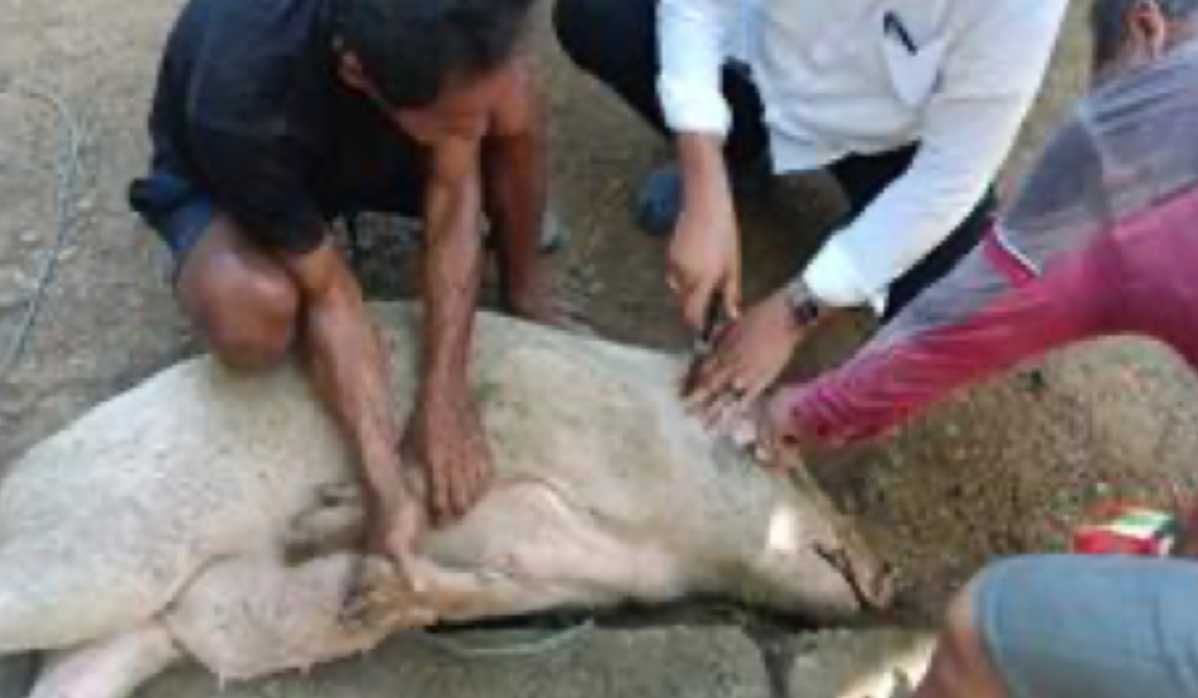Tarun Karthick
Port Blair, 27 December 2023
The Department of Animal Husbandry and Veterinary Services spearheaded a transformative Veterinary Health Camp and Awareness Programme at Tapong Village on Champin Island. This groundbreaking initiative aimed to revolutionize traditional practices by educating tribal farmers on enclosed pig rearing to mitigate environmental damage and enhance hygiene standards.
The primary thrust of the camp was to instill awareness among tribal farmers regarding the potential pitfalls of open rearing, which not only adversely impacts vegetation but also fosters unhygienic conditions. Driven by the goal of promoting sustainable animal husbandry practices, the programme strived to deliver comprehensive medical care for the animals inhabiting Tapong Village. Additionally, it sought to address prevalent veterinary issues by distributing essential medicines and offering educational sessions on animal health and preventive measures.
The camp facilitated meticulous health examinations for animals brought in by the community. Swift and immediate treatment was provided to animals afflicted with ailments, infections, injuries, or other health concerns. As part of the holistic approach, a range of crucial veterinary medicines encompassing antibiotics, deworming agents, multivitamins, and feed supplements were disbursed among the tribal farmers.
Engagement sessions served as invaluable platforms to enlighten the tribal community on the nuances of proper animal care, nutrition essentials, and strategies for disease prevention. These sessions were characterised by active participation from local tribal residents, who eagerly brought their animals for check-ups and engaged in group discussions revolving around advanced animal husbandry practices.
An interactive question-and-answer segment proved instrumental, enabling farmers to seek clarifications on various ongoing schemes while fostering a deeper understanding and enthusiastic participation. Detailed information about existing schemes, their objectives, benefits, and eligibility criteria was meticulously conveyed to the tribal farmers, empowering them with comprehensive insights.

